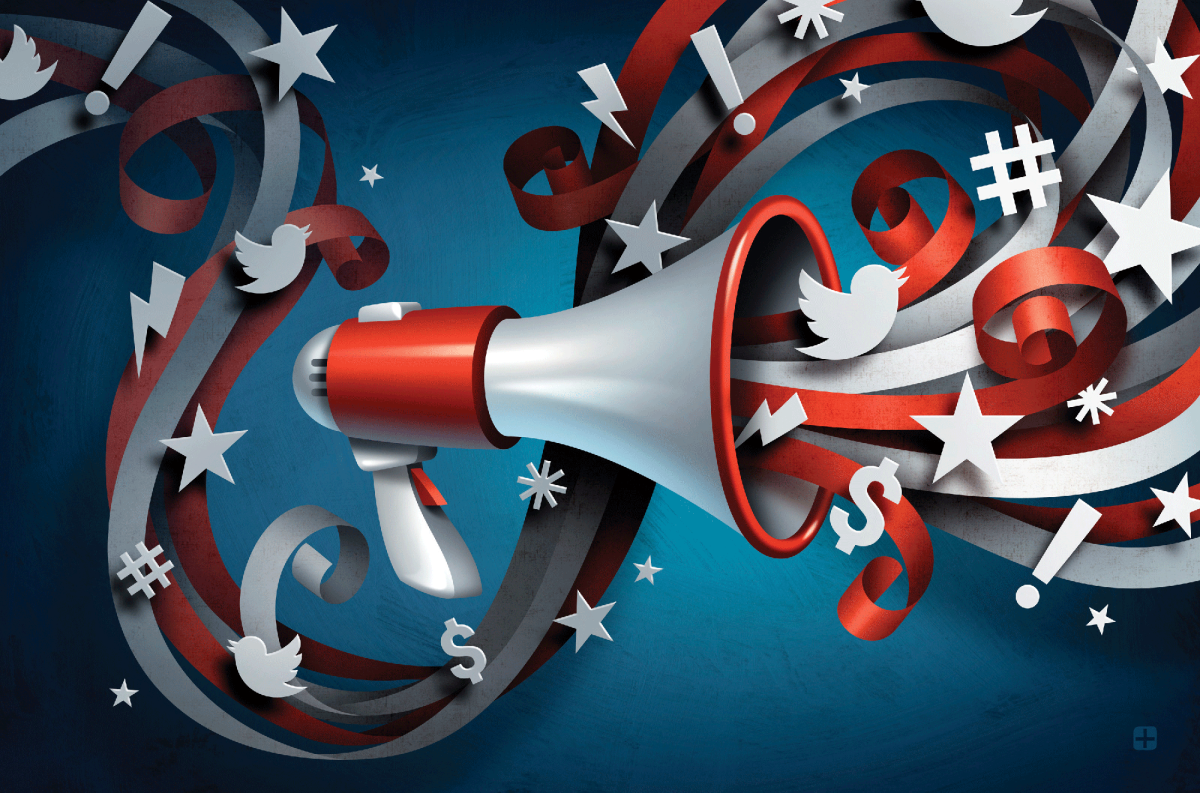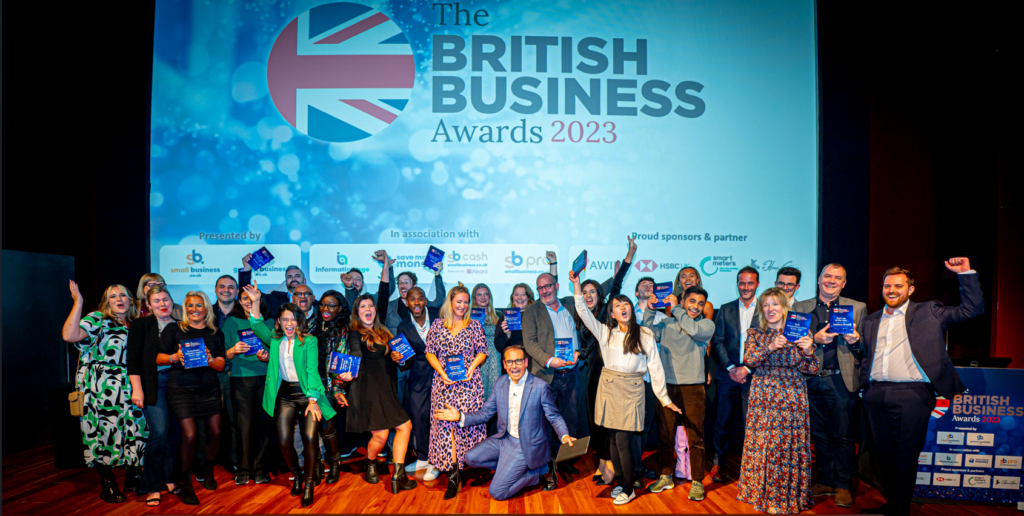
Remember the guy on a horse who could bake gourmet cakes in the dream kitchen you always wanted, all while swan-diving off a waterfall?
Ah, the “Old Spice Guy”! A marvelous blend of humor, absurdity, and charisma, this character didn’t just sell deodorant; he sold a wildly amusing experience.
Those commercials didn’t just reach out to those looking for a new scent; they painted a creative, fun mural across TV, social media, and YouTube, captivating audiences with their unpredictable charm.
The outcome? A wave of viral hilarity, birthing a legion of fans who didn’t just watch—they shared, mimicked, and even integrated the quirks into their videos!
Did Old Spice know they were onto a jackpot of viral gold when they came up with the concept? They might have had an inkling, but the explosion of fandom? That’s the unpredictable magic of viral marketing.
What is viral marketing?
Viral marketing is a strategy that encourages people to share a product message across their networks, primarily on social media, creating an organic buzz. It’s ‘viral’ because of how quickly and broadly a message can spread, just like a virus, reaching beyond the intended audience to the general public. It’s about sparking conversations and leveraging audience interactions to promote a product or service, making the message resonate so much that people can’t help but share it.

Hitting the viral jackpot isn’t about having a foolproof formula. It’s about blending strategy, ingenuity, and a hearty dose of understanding your target audience.
In the last 15+ years, I’ve mentored hundreds of entrepreneurs and business owners, helping all kinds of businesses, from the small and mighty to some established players, get their messages out there and make a real impact.
This guide is packed with all those real-world lessons and insights I’ve picked up along the way. Whether you’re just starting or looking to boost your marketing, I’m here to share what I know to help you get your content out there and make it stick with your audience.
Viral Marketing: The Ultimate Guide

Key takeaways – the benefits of virality
What makes letting your content catch the viral fever worth it?
- Explosive exposure. Viral marketing catapults your content into the limelight, exposing it to a broader audience and increasing visibility and reach. The “Ice Bucket Challenge” swept the internet, racking views and sparking global conversation about ALS. Post-it notes became omnipresent through widespread free samples, spotlighting the product in various settings.
- Cost-effective buzz. Viral campaigns create substantial buzz without draining your budget, maximizing ROI. Dollar Shave Club’s offbeat video captured attention, creating a buzz without a mega budget. “Wacky Waving Inflatable Arm Flailing Tube Man” generated attention with minimal cost through roadside visibility.
- Enhanced credibility. When your content goes viral, it earns consumer trust and enhances brand credibility through widespread approval. Wikipedia earned user trust and became a go-to source through viral word-of-mouth recommendations. Tupperware won over consumers with product demonstrations and user testimonials.
- Community building. It fosters a community around your brand, encouraging user interaction and brand loyalty. Reddit’s diverse communities garnered followers, fostering a sense of belonging and interaction. Local book clubs have nurtured offline communal spaces for literary discussions.
- Increased lead generation. Viral content attracts potential customers, generating leads and conversions. Dropbox’s referral feature sparked widespread sharing, attracting many new users. Word-of-mouth referral programs at local gyms have drawn in new members through community buzz.
- Boosted sales. The heightened exposure and engagement drive sales upwards, impacting the bottom line positively. The Instant Pot became a household name through online chatter, leading to a surge in sales on platforms like Amazon. The annual return of Starbucks’ Pumpkin Spice Latte has consistently spiked sales, courtesy of its offline and online buzz.
- Heightened brand awareness. Viral campaigns engrain your brand in the consumer’s mind, enhancing brand recall and recognition. Coca-Cola’s “Share a Coke” campaign bolstered its brand image and increased visibility. Burger King’s “Have it your way” campaign resonated with consumers, reinforcing brand identity.
- SEO perks. The backlinks and mentions from viral content can boost your SEO rankings, improving online visibility. Viral “How to Tie a Tie” content enabled fashion blogs to climb SEO rankings through increased backlinks. High demand and word-of-mouth for local restaurants can influence their search engine standings locally.
- Customer engagement boost. Interactive and engaging viral content keeps the consumers hooked, fostering a stronger connection with the brand. Old Spice’s interactive video campaign spurred conversations and interactions, deepening customer relations. McDonald’s interactive billboards have engaged passersby, making the brand more relatable and accessible.
- Market insight gains. The widespread use and feedback from viral content offer valuable insights into market trends and consumer preferences. The extensive utilization of Google Forms has allowed companies to gather rich market insights. The responses from sampling campaigns at Costco have provided insights into consumer preferences and product performance.
What’s your brand’s true essence?

Discover your brand’s unique character in just 3 minutes & unveil 15 key insights to make your brand stronger.
Start the free quiz now!
The downsides of viral marketing
We’ve all seen our fair share of viral hits and misses. While going viral can be a game-changer, it’s not always a walk in the park. A few bumps and pitfalls can make the journey a bit tricky. Here are some of those hiccups you might run into:
- Unpredictability. You can put in all the work and whip up a killer campaign, but there’s no guarantee it’ll catch fire. It’s like throwing spaghetti at the wall and seeing what sticks. Have you ever heard of a company betting on a flashy ad only to get a few likes and shares (or the wrong type of publicity)? This happens more often than you think!
- Negative buzz. Sometimes, campaigns grab attention for all the wrong reasons. A misstep can have people talking, but not in a good way. An online ad might spark controversy and get folks heated on X (Twitter). That’s a lot of damage control to do.
- Brand dilution. When your content spreads like wildfire, you lose a bit of control. Your message might get twisted, and your brand might lose its essence. A catchy slogan gets memeified; before you know it, it’s no longer about your brand.
- Resource intensive. Creating content that stands out takes time, effort, and serious creativity. And even then, it’s a gamble. That super cool video that took ages to make? It might just blend into the background noise of the internet.
- Short-lived impact. Going viral can be a flash in the pan. Today’s hot topic is tomorrow’s old news. A trending hashtag can have everyone buzzing one day and be forgotten the next.
- High expectations. Once you go viral, people expect more hits. Keeping that momentum can be a tough act to follow. After a smashing success, your next big thing might not hit as hard, and fans might be left wanting.
- Audience misalignment. Sometimes, the folks loving and sharing your content aren’t the ones you’re trying to reach. Getting a million shares is cool, but not if it’s not reaching the folks who’ll buy what you’re selling. This scenario is typical for B2B businesses dabbling in viral TikTok videos.
- Privacy concerns. In the bid to go viral, there’s a risk of overstepping boundaries and getting into hot water over data and privacy issues. An app that asks for too much personal info can quickly turn from a hit to a privacy nightmare.*
- ROI uncertainty. It’s hard to predict if all the buzz will translate to dollars and cents. Many likes and shares feel good but don’t always mean more sales.
- Overemphasis on quantity. The race for likes and shares can sometimes make quality take a backseat. Chasing trends might get attention, but it might not be the kind of attention that’s good for your brand in the long run.
Best practices for crafting viral magic
It’s not about luck but connecting, resonating, and striking the right chords, much like Mr. Beast does with his philanthropic stunts on YouTube. Let’s dissect some practices that can infuse your campaigns with that viral spark.
1. Know your target audience inside out
To make a campaign stick, you’ve got to understand the heartbeats and mindsets of your target audience. It’s about creating content that echoes their values, aspirations, and emotions.
When launching crowdspring, we considered releasing a quirky potato launcher video (a student film crew created it). It had the makings of a fun, share-worthy piece. But, a closer look at our strategy revealed a mismatch. Success in virality could mean drawing in a crowd of creatives, a vibrant bunch, but not our primary target of business owners.
Netflix does a stellar job creating tailor-made trailers based on viewing habits, resonating with individual viewers, and making them share-worthy!
Many offline businesses create viral sensations, too. Think about those local cafes with witty, relatable chalkboard signs out front, creating a buzz and drawing crowds.
2. Leverage strong visuals that speak
A picture is worth a thousand shares! Strong visuals narrate your story, captivate the audience, and serve as bait for the eyes.
Instagram’s success is built on visually enticing content, making every post a potential viral hit. Innovative billboards with eye-catching imagery can turn heads and become the talk of the town, enhancing brand recall.
3. Creativity is king
An out-of-the-box, original idea is the backbone of a viral campaign. It should leave an imprint and be the conversation starter.
The ALS Ice Bucket Challenge was groundbreaking, turning a simple idea into a global phenomenon. Red Bull’s Stratos jump was a masterstroke in creative marketing, skydiving from the stratosphere and leaving the world in awe.
4. Emotional connections are essential
Emotional hooks make campaigns memorable. The goal is to evoke feelings, leading to a cascade of shares. Dove’s Real Beauty Sketches Campaign struck chords by addressing self-esteem issues, sparking worldwide conversations. Charity events that tug at heartstrings, leveraging emotional stories to gain support and spread awareness, are stellar examples.
5. Optimize for shareability
A campaign’s reach is amplified when it’s share-friendly. Embedding sharing options and leveraging influencers can catapult your content into the viral sphere. Memes are inherently shareable, transforming simple ideas into viral sensations through platforms like Reddit and Twitter. Word-of-mouth is the oldest form of shareable content. A remarkable customer service story can spread like wildfire, drawing customers in.
6. Timing is everything
Releasing content when your audience is most active can be the difference between a hit and a miss. Aligning with major events or holidays can amplify your reach. Tweeting during high-profile events like the Oscars can see engagement soar; just ask Oreo and their blackout tweet! Launching a new product around Black Friday can capitalize on the shopping frenzy, creating buzz and boosting sales.
Crafting a viral campaign isn’t about throwing content into the wind and hoping it flies; it’s about precision, resonance, and marketing magic. Whether it’s an infectious meme or a heartfelt offline event, understanding your audience, being visually compelling, staying original, hitting emotional cords, ensuring shareability, and timing it right are the ingredients for viral success.
Viral marketing campaign examples
Let’s look at some of the most popular viral marketing campaigns and what small businesses can learn from each:
Old Spice: “The Man Your Man Could Smell Like”
Old Spice needed to redefine its brand image and appeal to a new demographic, women, who often purchase men’s hygiene products. They created humorous, over-the-top ads featuring “The Old Spice Man,” addressing women directly.
This campaign went viral due to its humorous, unexpected approach and direct engagement with a new demographic, demonstrating the effectiveness of humor and direct engagement in viral marketing.
Insights for small businesses and startups:
- Identifying and addressing your actual buyer, even if indirectly related to the end user, can enhance the campaign’s impact.
- Humor and creativity stand out and can significantly increase brand recall and recognition.
Popeyes Chicken Sandwich
Popeyes aimed to advertise its new chicken sandwich in 2019 in a market dominated by competitors like Chick-fil-A. It cleverly engaged in online discussions and humorous debates comparing its sandwich to others. This smart utilization of user-generated content and online buzz allowed Popeyes to become a major contender in the fast-food industry. It became viral because it tapped into existing debates with humor and engaged directly with consumers, creating anticipation and scarcity around the product.
Insights for small businesses and startups:
- Aligning your product launch with current discussions and debates can give it more visibility.
- Humorous and timely responses can help maintain engagement and keep the discussion alive, which benefits online and offline businesses.
Blendtec’s “Will it Blend?”
Blendtec faced the challenge of showcasing the power of their blenders engagingly. They initiated the “Will it Blend?” series, blending unconventional objects like smartphones and marbles. This solution provided proof of the blender’s capability while entertaining viewers. The unique and amusing content naturally encouraged sharing, making the series a viral sensation.
Insights for small businesses and startups:
- Demonstrating product capability uniquely and entertainingly can drive engagement and sales.
- Regularly releasing content keeps the audience engaged and coming back for more.
Spotify Wrapped
Spotify’s challenge was maintaining user engagement and promoting the app during year-end when multiple platforms released year-end reviews. Spotify Wrapped gives users a personalized overview of their listening habits, becoming an annual event users eagerly anticipate and share. The campaign’s success hinges on its personalization and the user’s desire to share their music tastes, creating a surge in app downloads and interactions, thereby cementing its virality.
Insights for small businesses and startups:
- Personalization is key in engaging your audience; it gives them something unique to share.
- Regularly updating your content keeps your audience anticipating and engaged, ensuring consistent interaction with the brand.
Nike “Just Do It” with Colin Kaepernick
Nike embraced the challenge of societal issues and racial injustice by featuring Colin Kaepernick in their “Just Do It” campaign. Kaepernick was a polarizing figure due to his kneeling protests during the national anthem at NFL games. This campaign sparked discussions about racial inequality and rights, becoming viral as it took a stand on prevailing societal issues and resonated with people’s sentiments and beliefs.
Insights for small businesses and startups:
- Taking a stand on societal and cultural issues can drive discussions and visibility.
- Aligning brand values with the campaign message can enhance brand image and loyalty.
Old Town Road by Lil Nas X
Lil Nas X sought to jump-start his music career in a saturated market. He strategically released catchy snippets of “Old Town Road,” creating anticipation and buzz around the full song. The combination of a catchy, meme-able song, with strategic, anticipatory releases and ensuing debates about music genres, made the song and Lil Nas X immensely popular, illustrating how anticipation and uniqueness can drive virality.
Insights for small businesses and startups:
- A unique and catchy product (or content) appeals to a broad audience and sparks discussions.
- Leveraging controversy can keep the conversation going and maintain visibility for your brand.
Always “#LikeAGirl”
Always aimed to address and change the negative connotation of the phrase “like a girl.” They created a video showing different interpretations of the phrase “like a girl” and highlighting the strength and confidence of young girls. The campaign’s impactful message and challenge to societal norms resonated with many. They sparked discussions about gender stereotypes, demonstrating the power of addressing societal issues and redefining derogatory phrases in creating viral content.
Insights for small businesses and startups:
- Addressing societal norms and stereotypes can resonate with a wider audience, driving conversations.
- Hashtags can be powerful tools in maintaining and tracking engagement and discussions around the campaign.
#eyeslipsface Challenge by e.l.f. Cosmetics
e.l.f. Cosmetics’ goal was to create brand awareness on a platform dominated by various trends, TikTok. They leveraged a branded song and encouraged users to post makeup videos with the hashtag #eyeslipsface. Combining a catchy song with user-generated content led to immense brand visibility, showcasing the importance of leveraging platform-specific trends and user participation in creating viral campaigns.
Insights for small businesses and startups:
- Creating shareable, relatable content can rapidly enhance brand visibility and interaction.
- Engaging with popular trends and platforms can help reach a younger and wider audience.
ALS: “Ice Bucket Challenge”
The ALS Association aimed to raise awareness and funds for ALS research. The Ice Bucket Challenge involved pouring ice-cold water over one’s head and nominating others to do the same. This campaign’s success was driven by its participatory, challenge-based nature, celebrity involvement, and representation of a larger cause, showcasing how combining entertainment with cause advocacy can lead to widespread engagement and awareness.
Insights for small businesses and startups:
- Campaigns that are enjoyable and make participants feel part of a bigger cause can have a lasting impact.
- Social media challenges can exponentially increase visibility and engagement.
Dove “Real Beauty Sketches”
The challenge for Dove was to highlight women’s real beauty in a world obsessed with unrealistic beauty standards. Dove used a forensic artist to draw women as they described themselves and then as strangers described them. The contrast showed how women harshly view themselves compared to others. This campaign became viral because it addressed universal insecurities and encouraged a conversation about self-esteem and body image, making it highly relatable and shareable.
Insights for small businesses and startups:
- Emotional and relatable content can drive more shares and discussions.
- Addressing real-world issues and insecurities can establish a deeper connection with the audience.
Mr. Beast’s YouTube Campaigns
Mr. Beast, a YouTuber, is known for his philanthropy and extravagant stunts. The challenge was to create content that stood out in the oversaturated YouTube environment. Mr. Beast combined philanthropy with entertaining content, like giving thousands of dollars to unsuspecting individuals. These campaigns went viral due to their shock value, heartwarming reactions, and genuine display of kindness, prompting shares and discussions across platforms.
Insights for small businesses and startups:
- Philanthropy and giving back resonate well with audiences, creating a positive brand image.
- Consistency in content and engagement is key to building and maintaining a dedicated audience base.
Grasshopper’s Chocolate Covered Grasshoppers
In an unorthodox and unforgettable manner, Grasshopper, a provider of virtual phone systems, leveraged an unusual product to create buzz – chocolate-covered grasshoppers. Grasshopper needed a way to bring attention to its services and to differentiate itself from competitors. It wanted not only to reach potential customers but also to create a buzz and get people talking.
Grasshopper sent boxes of chocolate-covered grasshoppers to influential entrepreneurs. This wasn’t just a random snack choice but a symbolic gesture aligning with their brand name and reinforcing their image. This gift’s bizarre and unconventional nature meant recipients were likely to share their experience online, adding to the campaign’s virality.
This campaign tapped into the human love for the peculiar and unexpected. People were intrigued and amused by the idea of receiving such an unconventional gift, prompting conversations across social media platforms and beyond. The alignment of the gift with the brand name made it memorable and helped to cement Grasshopper’s image in the minds of the recipients and their audiences.
Insights for small businesses and startups:
- Use marketing strategies that align with your brand identity. Even an unconventional approach can yield positive results when it is consistent with your brand image and message.
- Don’t be afraid to think outside the box. Sometimes, unconventional and surprising brand strategies can capture attention more effectively than traditional methods, encouraging sharing and discussions to increase brand visibility and engagement.
Coca-Cola “Share a Coke”
Coca-Cola wanted to create a more personalized experience for their consumers. They introduced the “Share a Coke” campaign, featuring names on Coke bottles. The personal touch encouraged people to find bottles with their names or friends’ names and share pictures online, making it viral. It catered to the human instinct of personal connection and recognition, inducing widespread engagement and interaction.
Insights for small businesses and startups:
- Personalization and customization make the content more shareable and relatable.
- Involving the audience in your campaign encourages more interaction and engagement.
GoPro User-Generated Content
GoPro aimed to showcase the versatility and quality of their cameras. They encouraged users to share their adventures captured on GoPro. The authenticity and variety of user-generated content demonstrated the product’s value and created a sense of community among users. This approach made the content relatable and shareable, allowing GoPro to reach wider audiences organically.
Insights for small businesses and startups:
- User-generated content provides authenticity and relatability.
- Encouraging users to share their experiences enhances brand loyalty and reach.
Toms “One for One”
Toms wanted to make an impact and also create a sustainable business model. They introduced the “One for One” model, donating a pair of shoes for every pair purchased. This clear, charitable mission appealed to consumers’ altruistic side, creating a buzz as it blended consumerism with philanthropy, making people feel good about their purchases and promoting widespread sharing and advocacy.
Insights for small businesses and startups:
- A strong, charitable mission can drive purchases and brand loyalty.
- Clear and concise messaging helps in better understanding and recall of the campaign.
Airbnb “Live There” Campaign
Airbnb aimed to distinguish itself from conventional travel options. The “Live There” campaign encouraged users to experience destinations as locals rather than tourists. User-shared experiences and the promise of authentic travel made the campaign relatable and attractive. The concept became viral as it resonated with the evolving travel preferences of experiencing rather than observing, thus creating a ripple effect of sharing and discussions.
Insights for small businesses and startups:
- Encouraging users to share their unique experiences can drive brand engagement and trust.
- Showcasing diversity and inclusivity can appeal to a broader audience and drive brand values.
Conclusion
Achieving viral success is more art than science, with no one-size-fits-all formula. Looking at past successes can offer useful clues, but at its heart, going viral is about making a genuine connection with your audience. It’s about creating content that speaks to people on a personal level, making them eager to share. So, focus on crafting content that resonates, engages, and excites, and who knows? Your brand might just be the next big talk of the town!




